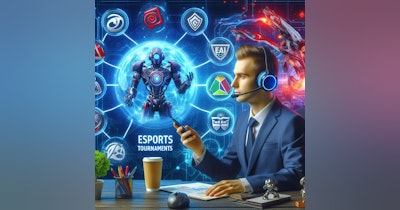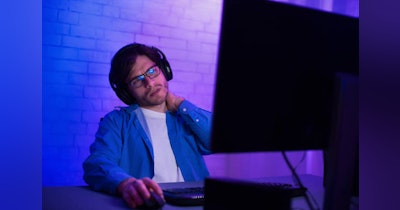This season on Gamers Change Lives we are covering the aspects of esports success through the significance of incubators and accelerators: their differences, functions and their benefits to entrepreneurs. The goal of these conversations is to help esports entrepreneurs and other entrepreneurs find ways to tap into the resources the incubator and accelerator programs may provide, as well as other platforms they can access so they boost their businesses and improve their skills. For this episode on ‘The New Era of Gaming and Culture’, we had Mr Sho Sato, the founder and CEO of LUDiMUS Inc., (Japan), which is a gaming consulting company. He is also co-founder and secretary-general for the ED, the first and only gaming incubation program in Japan. He is also leading the CIGU incubation program by the IGDA.
The name ‘Ludimus' according to Sho was picked from classical Latin, which means “we play”, and what they do at Ludimus is offer consultation for the game, anime and manga industry; helping game companies expand their businesses into the international market. And this is for emerging countries in the Middle East, India, Latin America, and Africa and so on. The emerging country connect is mostly because he did a lot of work with Arabic game developers in the Hashemite Kingdom of Jordan, through which he helped them expand their business into Europe. For the gaming scene between Japan and the US, Sho points out that the mobile game market is a very young and strong one, with players in the community being young and old. Emerging markets have their ages in mobile game markets ranging from ages 10, into 20 and older, which can be significantly seen as well in Korea and/or Europe, and are very stream-driven and esports driven.
Ludimus was inspired from reports Sho had written on gaming in emerging countries. He covered that of the scenes in India, Central Asia, Lhasa, and Brazil, and after five years of doing so, he switched to consulting and matching, because he realized that the stakeholders in the emerging countries and their markets were related to the gaming industry but have some gaps due to their customs and way of thinking. Hence Ludimus, to help bridge the gap and bring meaning to these perspectives and guide the making of informed choices for companies.
In locating incubator and accelerator programs Sho points out that they may vary for different countries when it comes to locating them. Europe for example, has incubator programs in most of the countries. Sweden has incubation programs available in almost all of its regions, making it easier to work with a local game incubator. Whereas countries in Latin America may not have it easy to locate game incubation programs; and the examples there are Argentina, which has two game incubation programs, and Chile, which has a training program instead.
The key to finding incubators according to Sho is to look outside your country, or find game incubation programs that work for international game developers. India, Thailand and Indonesia have game incubator programs, with India’s being one of the biggest in South Asia and mostly supported by educational institutions. This makes it a different tendency, since most incubators are either publicly funded or privately funded. After checking in with countries like Pakistan, Bangladesh, Nepal, and Sri Lanka, Sho also found out that they also have their programs but are not exactly incubator programs.
It is definitely different operations in the Middle East and Africa. With the game developers’ ecosystem in Saudi Arabia, that has more government influence and funding, with strategies put in place for esports and game development where there will be more game studios built and hit titles created. With Africa there are more game inhibition programs, with which countries such as Zambia, Tunisia, Ghana, Senegal and South Africa have adopted and have had training organizations set up to carry them out.
For ways to improve your chances to get accepted by the incubator programs as an entrepreneur, Sho advises that you consider a number of factors: having a game, a very good trailer and a very good game system which is significant to getting into the program. You will also need to improve on your pitch because this is not only for the incubator, but the game publisher and investor. Getting into international markets may require you make pitches in predominantly spoken languages, such as English, and this is what will help you get a publisher and investor. The third point to consider is to understand the business side of game development. Making a really good game is important, and that fact has been established, but to know about registering the company and working with investors is as important as developing the games. Not only is this going to ensure success rates with landing investments, but you are also equipped with the awareness of business dealings in the long term.
We talk more on incubators and accelerators with Sho Sato on the Gamers Change Lives Podcast as he speaks on “The New Era of Gaming and Culture”. Listen to the full podcast episode with Sho on all major podcast streaming platforms. The episode is also live on our website. Oh right here!
Esports has helped create jobs for lots of people. Interested in knowing about the business side of esports? Listen to the Gamers Change Lives Podcast!








